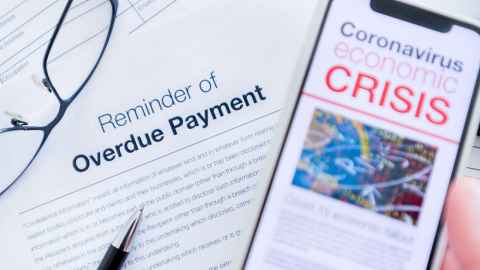'You're not actually living life': benefit recipients suffer increased hardship during Covid
20 April 2021
Covid-19 exacerbated existing levels of material and emotional hardship for people on low core benefit rates, a new study has found.

Dr Louise Humpage, a sociologist at the University of Auckland who conducted the study in collaboration with Child Poverty Action Group, Auckland Action Against Poverty and FIRST Union, says most benefit recipients were struggling to survive financially before the national lockdown.
“Covid-19 cost hikes in basic groceries and other goods really pushed them over the edge,” she says.
And the situation was particularly bad for sole parents and people with disabilities or chronic illness.
“Although many New Zealanders think benefit recipients got a $25 per week increase back in April 2020, many of our interviewees said it didn’t make one iota of difference because they only got a fraction of that due to clawbacks in supplementary assistance.”
She says the enhanced Winter Energy Payment made a bigger difference to their lives but that only lasted three months, and despite minor increases to keep up with inflation, benefit recipients described their lives as “a daily grind” and “soul destroying”.
Dr Humpage believes the findings, which document the extreme effort required to survive on an inadequate income, support a growing recognition that core benefits are too low and need to be significantly increased to ensure the wellbeing of all New Zealand families.
“Given rising concerns about the mental health of New Zealanders, it’s also alarming that benefit recipients found the emotional impact of dealing with Work and Income (WINZ) so challenging they avoided contact, even when this meant going without food or entitlements,” she says.
Some recipients already feel like they are excluded from the ‘team of five million’ and a two-tiered benefit system would only further highlight that the ‘kindness’ the government asks us to demonstrate does not extend to those on core benefits.
Participants said that at WINZ “they make you small” and there was “no care, no compassion”, even for women seeking support after leaving violent relationships.
Dr Humpage stresses that the stigma and shame already associated with receiving a benefit in New Zealand worsened when the Covid-19 Income Relief Payment was introduced.
“Paid at a higher rate and with fewer conditions, this benefit suggests those who lost their jobs due to Covid-19 are more deserving than other benefit recipients.”
Participants described the new Covid-19 benefit as a “kick in the guts” given they are expected to continue to struggle on much lower core benefit rates, despite having high health costs or raising children alone.
The findings also suggest that unemployment insurance, which is under consideration by the government, would enhance the view that some New Zealanders are ‘deserving’ and others are not, Dr Humpage believes.
“Some recipients already feel like they are excluded from the ‘team of five million’ and a two-tiered benefit system would only further highlight that the ‘kindness’ the government asks us to demonstrate does not extend to those on core benefits.”
Media contact
Julianne Evans | Media adviser
M: 027 562 5868
E: julianne.evans@auckland.ac.nz